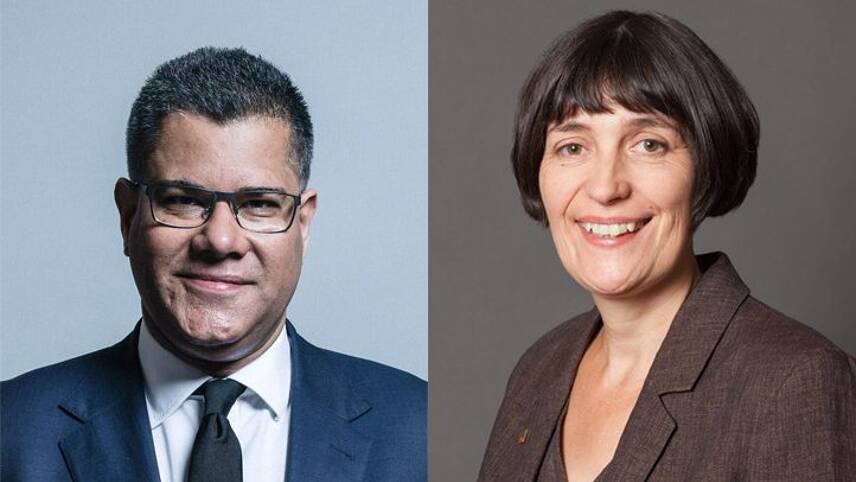Register for free and continue reading
Join our growing army of changemakers and get unlimited access to our premium content

Across the planet, we are seeing wildfires rage, and floods sweep through cities and storms gain in strength. These are the undeniable effects of extreme weather that scientists have long been warning about.
The stakes could not be higher for the climate action agenda. The climate commitments we make this year could shape this decade, which the science tells us will be pivotal for addressing climate change. As such, we need to embrace actionable business and policy decisions today that have a long-standing impact on both the planet and future generations.
As the stark report from the Intergovernmental Panel on Climate Change says, keeping temperature rise to 1.5 degrees is critical. Temperature increases of just half a degree more would see hundreds of millions more people affected. But the world has moved too slowly since signing the Paris Agreement at COP21 in 2015, and now, to keep 1.5 degrees within reach, we must halve global emissions by 2030. That means taking action this year, which makes the United Nations Climate Conference in November, COP26, absolutely critical.
Understanding your business’s role in solving climate change and building a better world for future generations is the first step. This is why CGI was an early signatory to the Open Letter to G20 leaders calling on global leaders to champion the Paris Agreement and keep temperature increases below 1.5 degrees. 778 businesses representing US$2.7 trillion in annual revenue and employing 10 million people around the world have signed this letter, demonstrating that action on climate is not just good for the planet; it’s good business.
Consider that together 215 of the world’s biggest companies have valued their climate risks at around $1trn. Yet, those same companies can gain twice that amount from the move to green economies. Successful firms look to the future, and it’s clear that the future of the global economy is green. The signs are everywhere. Solar and wind power are cheaper than coal and gas in the majority of the world. Now 70% of global GDP is covered by net-zero targets, compared to 30% when the UK took on the COP26 presidency. Every G7 country has a short-term emissions reduction target that takes them to net-zero by 2050.
Ultimately, climate friendly policy decisions today drive further investments tomorrow, which spur business decisions favouring climate solutions.
From innovative thought to scaled-up action
Although important, pledges are only the start. Alongside making these commitments, businesses must act and look to continuously increase the ambition of their goals in collaboration with governments, civil society, cities and regions. The only way we can have a true positive result is through a collective response and accountability.
One of the key ways businesses can scale up their action is through the introduction of Science-Based Targets. CGI in the UK recently undertook such measures, having its science-based targets independently verified by the Science Based Targets initiative to ensure all goals are feasible and will deliver the desired net-zero goal. Since the announcement of the verification of CGI’s SBTs, both clients and CGI members have fed back the importance with which they view science-based plans to tackle climate change.
A conscious corporate conscience
Businesses across the world are taking corporate action with climate change at the top of the agenda. This means that those companies who have yet to join the Race to Zero let alone the conversation – face the terrible risk of falling behind in an ever-increasingly environmentally conscious corporate world.
What’s more, with socially conscious investors placing an ever-increasing emphasis on Environmental Social Governance (ESG) in corporate management, businesses stand to gain many social benefits from taking advantage of environmental opportunities. CGI has seen the demand from clients for credible environmental credentials and sustainable offerings continue to rise. Ultimately, for your business model to be sustainable, you must be sustainable.
Furthermore, from your clients’ perspectives, your business is part of their supply chains and therefore, your actions impact your clients’ zero-carbon progress. Getting ahead of the game and setting your SBTs positively impacts your business and your clients.
The bottom line
With business becoming more and more globalised and connected, our choices ultimately impact one another. It’s therefore critical that we work to support ourselves and one another. From employee to client to supplier, we must all prioritise sustainable businesses for the good of the planet, future generations and the bottom line.
We need every part of society behind these COP26 goals to help make the Paris Agreement a reality.
Action from governments can encourage businesses to seize the opportunities presented by the clean economy. Financial institutions and companies need to play their part in driving down global emissions and redirecting the capital flowing through the global economy towards a 1.5-degree world. Short term emissions reduction commitments give companies the confidence and clarity they need to invest in our green future. Equally, business taking action helps to create the conditions governments need to take bold steps. On climate, our efforts support one another.
So, in this vital year, we must all play our part in protecting our shared planet and keeping 1.5 degrees alive. This is our moment. There are no second chances. Let’s seize it together.
Tara McGeehan, President of CGI UK and Australia and Alok Sharma, President for COP26



Please login or Register to leave a comment.